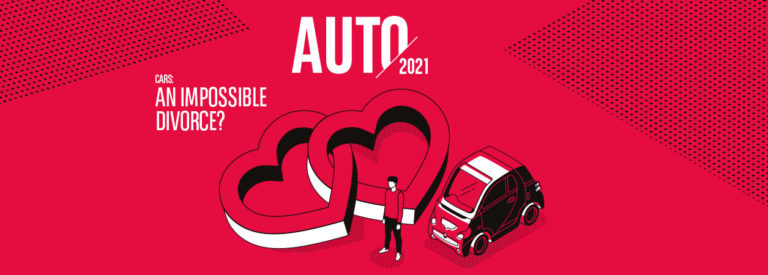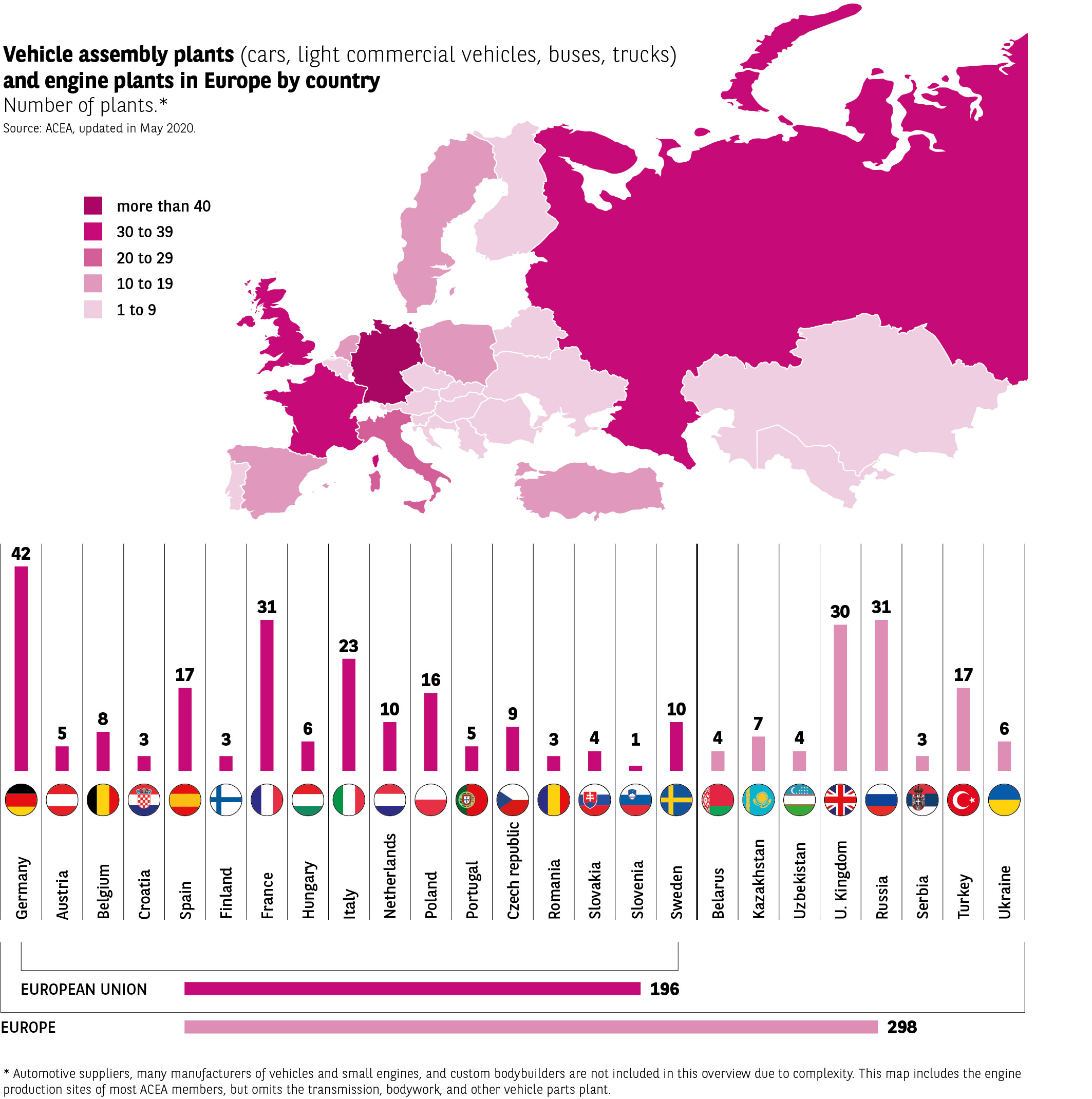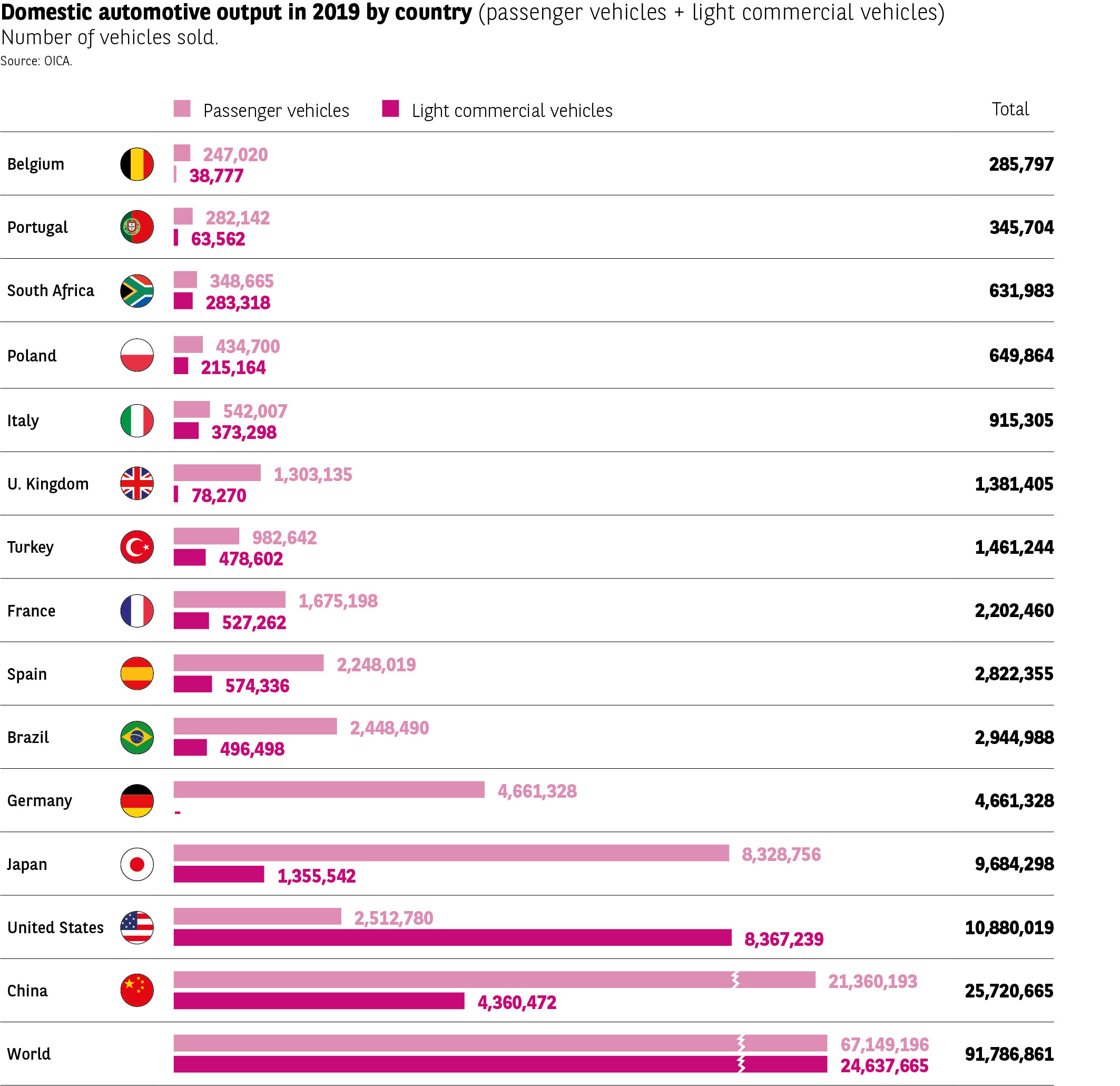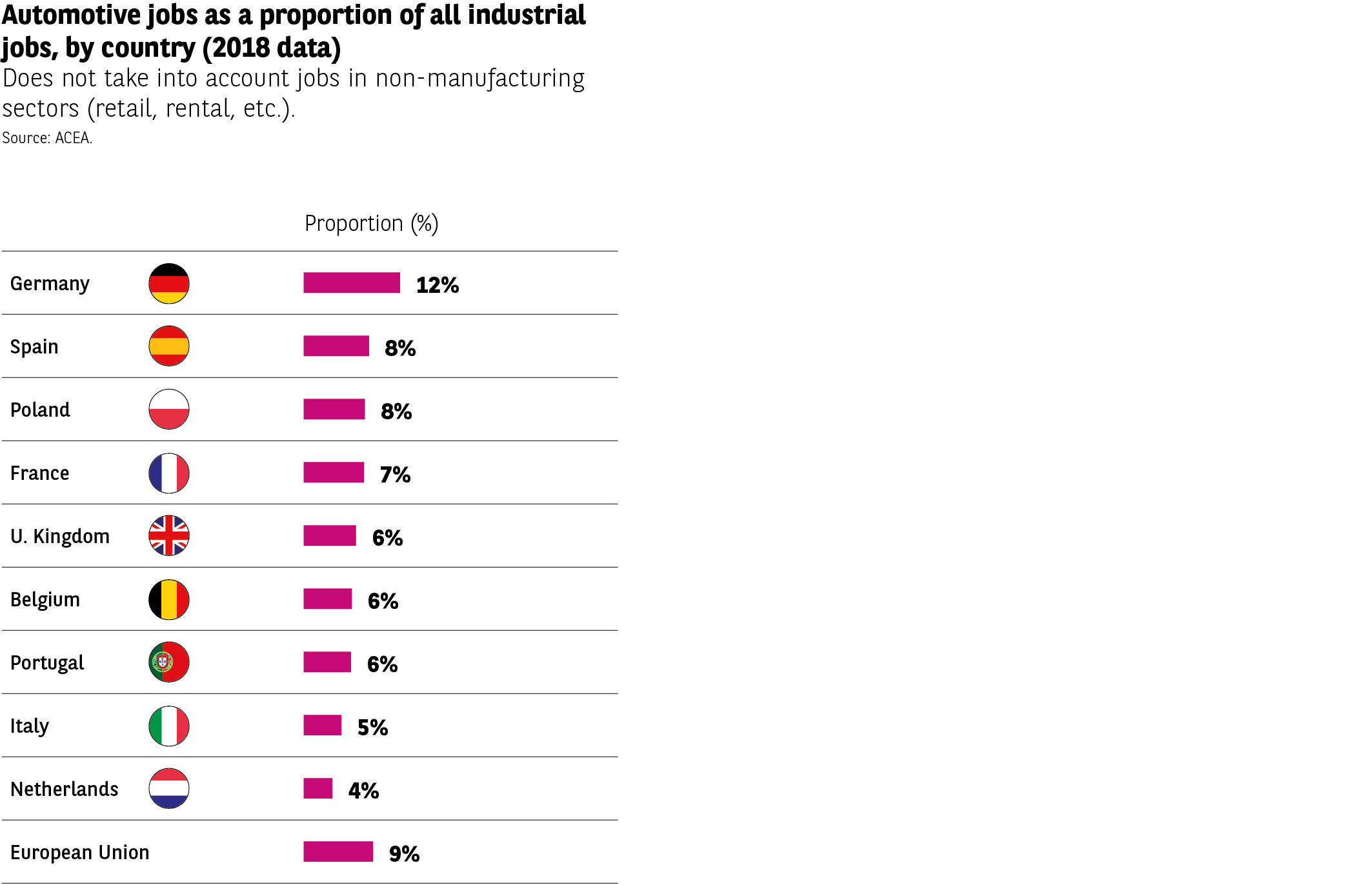An economic sector with great clout


Fig. 26 / Context:
Download this infographic for your presentations
There is a saying in French: when the building trade is doing well, everything does well. Similarly, it is tempting to say that when the automotive industry is firing on all cylinders, the rest follows. In the European Union alone, the sector accounts for 8.5% of total industrial output and directly employs 2.7 million people. The industry has an industrial presence in every European country featured in L’Observatoire Cetelem, as it does in all the other nations. This is a stark reminder of the economic importance of the auto industry and, above all, of the social and human consequences of a crisis like the one we are experiencing.
Fig. 27 / Context:
Download this infographic for your presentations
Fig. 28 / Context:
Download this infographic for your presentations
